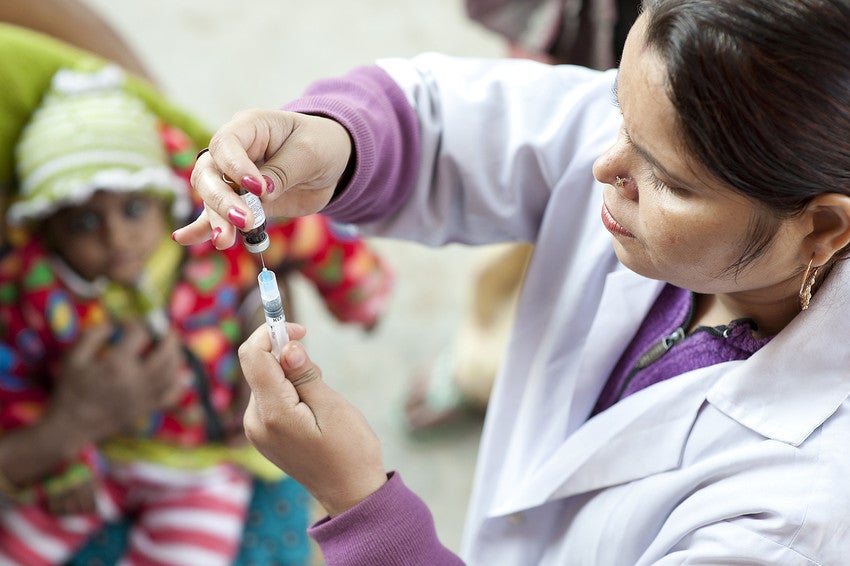Pancreatic cancer treated in mice by loading tumour cells with tetanus
Researchers say their findings indicate that treatment could be a useful immunotherapy for cancer, Thomas Kingsley reports


Your support helps us to tell the story
From reproductive rights to climate change to Big Tech, The Independent is on the ground when the story is developing. Whether it's investigating the financials of Elon Musk's pro-Trump PAC or producing our latest documentary, 'The A Word', which shines a light on the American women fighting for reproductive rights, we know how important it is to parse out the facts from the messaging.
At such a critical moment in US history, we need reporters on the ground. Your donation allows us to keep sending journalists to speak to both sides of the story.
The Independent is trusted by Americans across the entire political spectrum. And unlike many other quality news outlets, we choose not to lock Americans out of our reporting and analysis with paywalls. We believe quality journalism should be available to everyone, paid for by those who can afford it.
Your support makes all the difference.Immunity gained through childhood tetanus vaccinations could help the body to fight off pancreatic cancer, according to a study.
Currently, most patients diagnosed with pancreatic cancer survive only months with just 10 per cent of patients still alive five years after detection.
A team of scientists at Albert Einstein College of Medicine in New York released new findings showing that listeria bacteria, known to be naturally attracted to tumours, can selectively deliver inactivated forms of tetanus toxins to pancreatic cancer tumours in mice, subsequently causing the activation of cancer-killing immune response T-cells within the tumour.
Since most adults have already been vaccinated against tetanus as children, the immune system can detect the disease if it enters the body. This means pancreatic cancer cells loaded with tetanus should be visible to the immune system and are therefore vulnerable to the immune system’s attack, the researchers said.

“Today’s checkpoint inhibitor drugs work well against some types of cancer but only rarely help people with pancreatic cancer,” said Claudia Gravekamp, PhD, associate professor of microbiology and immunology at Albert Einstein School of Medicine. “The problem is that pancreatic tumors aren’t sufficiently ‘foreign’ to attract the immune system’s attention and can usually suppress whatever immune responses do occur. Essentially, our new therapy makes immunologically ‘cold’ tumors hot enough for the immune system to attack and destroy them.”
Researchers gave tetanus vaccines to young mice specimens that were specially engineered to develop pancreatic cancer as they age to test the treatment.
When the mice developed advanced pancreatic cancer, listeria bacteria containing tetanus were injected into the mice's abdomen.
“The Listeria bacteria are quite weak and are readily killed off by the immune systems of people and animals—everywhere, that is, except in tumor areas,” said Gravekamp. “Our treatment strategy actually takes advantage of the fact that pancreatic tumors are so good at suppressing the immune system to protect themselves. This means that only those Listeria bacteria in the tumor region survive long enough to infect pancreatic tumor cells and that healthy cells don’t become infected.”
The study published in Science Translational Medicine found that mice treated with the tetanus vaccines reduced tumour size by 80 per cent and reduced cancer spread by 87 per cent resulting in a 40 per cent survival rate compared to non-treated mice.
Ms Gravekamp and her colleagues are now planning clinical trials to assess whether weakened listeria bacteria can be safely injected into people as a possible treatment option which will see the tetanus-loaded listeria in people diagnosed with pancreatic cancer.
“The findings indicate that this treatment approach could be a useful immunotherapy for pancreatic cancer as well as other types of cancer, such as ovarian cancer, that remain difficult to treat,” said Ms Gravekamp.
Join our commenting forum
Join thought-provoking conversations, follow other Independent readers and see their replies
Comments